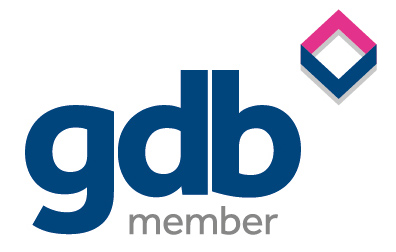Harvey John
Unit 2 Ferry Wharf
Hove Enterprise Centre
Basin Road North
Portslade, East Sussex
BN41 1BD
Tax compliance professionals are currently in demand.
Creativity or Compliance?
These are two words that could hardly be further apart on the human behaviour scale.
But when it comes to taxation jobs, the words are nowhere near as far apart. Unless you are dabbling in dangerous criminal activity, the way to creatively maximise the tax efficiency of an organisation is to fully understand how the tax rules work. Few know the rules better than compliance professionals.
Tax compliance professionals, with their deep understanding of tax rules and policies, will always be in demand. And for those who stay in compliance, a well-remunerated career beckons.
What does a tax compliance professional do?
A tax compliance analyst is responsible for making sure the financial information a company or individual submits to HMRC for each tax year is accurate, complete and adheres to the tax compliance obligations set out by HMRC and the law.
If the tax professional identifies any discrepancies, it is their responsibility to carry out further investigations to identify the extent and cause of the issue. Once the source of the inaccuracy is found, it is their responsibility to suggest solutions or to escalate the issue to higher management.
According to ACCA, key responsibilities include:
- Collating and reviewing tax returns on behalf of a client or company.
- Preparing annual tax returns and supporting financial statements.
- Responsibility for identifying and mitigating risk.
- Liaising with the tax authorities to resolve any queries or issues arising about tax returns.
- Liaising with internal and external advisors to ensure all tax submissions accurately reflect all transactions within tax reporting.
How to become a tax compliance professional
An appropriate professional qualification (such as the ATT, ACCA or ACA qualifications) is often required to pursue a career in tax compliance.
There are opportunities to embark on a tax compliance career straight from school or university if you are prepared to continue your studies while working.
Attributes required include problem-solving skills and excellent numeracy. Attention to detail is important; avoiding careless mistakes is vital.
Larger organisations and practices offer structured promotion opportunities, often leading to management or analyst roles. Salaries can be in excess of £70,000 for senior roles.
And don’t forget working for HMRC (be a poacher turned gamekeeper!).
An understanding of the UK tax rules is, of course, important if you decide to work for HM Revenue & Customs (HMRC), who currently employ 66,000 people. A typical role would see you liaising with businesses and their tax representatives and lawyers on tax compliance. The more complex work can often be associated with the teams dealing with large multinationals.
Why now is great time to be a tax compliance professional
In normal times, the multitude of tax rules means it is easy for a business to fall foul of the regulations (or miss opportunities to make tax efficiency savings).
The last few years have been far from normal – and the complexities have multiplied. In the UK, with the combination of Brexit and Covid, there has been unprecedented upheaval and change.
A small selection of Covid-related temporary changes to taxation have included:
- Deferral of VAT payments (Quarter 2, 2021)
- Indirect Tax rates and reliefs for the hospitality and tourism sector.
- Waiver of import taxes on vital medical supplies
- Income Tax payment deferral
- Business rates reliefs
- Time To Pay requests to HMRC
- Corporation tax payment refunds (in exceptional circumstances)
- Accounts filing extensions and consequential impact tax deadlines
- Temporary Stamp Duty cut
- The Job Retention Scheme
- The Kickstart Scheme
- Changes to the Apprentice Scheme
- Traineeship Scheme (applies in England only)
- Statutory Sick Pay (SSP) refunds for smaller businesses
It’s no wonder that businesses need the help of tax compliance professionals more than ever. And as the economies start to recover, there will inevitably be even more changes to taxation policies.
It all means that tax compliance professionals are desperately needed.
And it’s always better to be in a sector where your services are in demand!
—
Search our latest tax jobs.
If you would like to see our company updates and industry insights, follow our LinkedIn page.
Author

From boutiques to the Big 4, and start-ups to multinational corporations, Alex manages a diverse portfolio of clients worldwide which has enabled him to develop a vast global network of indirect tax and tax technology professionals in 40+ countries.







